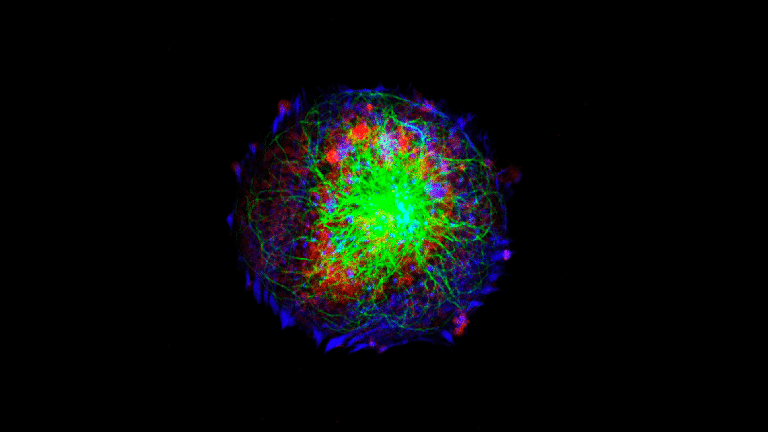
Professor Xu Dong Zhang and his team have discovered a way to combat a form of cancer most common in children under five – neuroblastoma.

Their paper on the discovery has just been published in the Proceedings of the National Academy of Sciences of the United States of America.
Neuroblastoma is a type of cancer that can be found anywhere in the body but is most commonly found at the top of the adrenal glands that sit at the top of the kidneys. It can also be found in the stomach, chest, neck, pelvis, and bones.
Professor Zhang and his team from the HMRI Cancer Detection and Therapy Research Program have been able to apply a discovery they made in 2020 to target a molecule that activates the cancer cells. They named the molecule MILIP (c-Myc-Inducible Long noncoding RNA Inactivating P53) and it was highly expressed in bowel cancer. Removing MILIP from bowel cancer cells led to the cells becoming more sensitive to treatment and stopped them from growing.
Once they had found the process worked in the bowel they used it to treat other forms of cancer.
Now they use molecule targeted therapy to kill cancer cells that rely on MILIP for survival to “kill these cancer cells and improve the survival of patients with late-stage cancer,” Professor Zhang said.
“Our team is developing new drugs to target MILIP by working with a class of molecules that are non-coding RNAs.”
An RNA is a nucleic acid present in all living cells. It has component similarities to DNA but instead of being double stranded, is single-stranded.
The team’s research involves screening millions of chemical compounds in combination with biopharmaceutic companies using sophisticated technology.
This innovative technology enables researchers to pinpoint issues at a highly personalised level and is called precision medicine.
HMRI would like to acknowledge the Traditional Custodians of the land on which we work and live, the Awabakal and Worimi peoples, and pay our respects to Elders past and present. We recognise and respect their cultural heritage and beliefs and their continued connection to their land.

Hunter Medical Research Institute
We’re taking healthy further.
Locked Bag 1000
New Lambton
NSW, Australia, 2305



This site is protected by reCAPTCHA and the Google Privacy Policy and Terms of Service apply.
Copyright © 2024 Hunter Medical Research Institute | ABN: 27 081 436 919
Site by Marlin Communications
